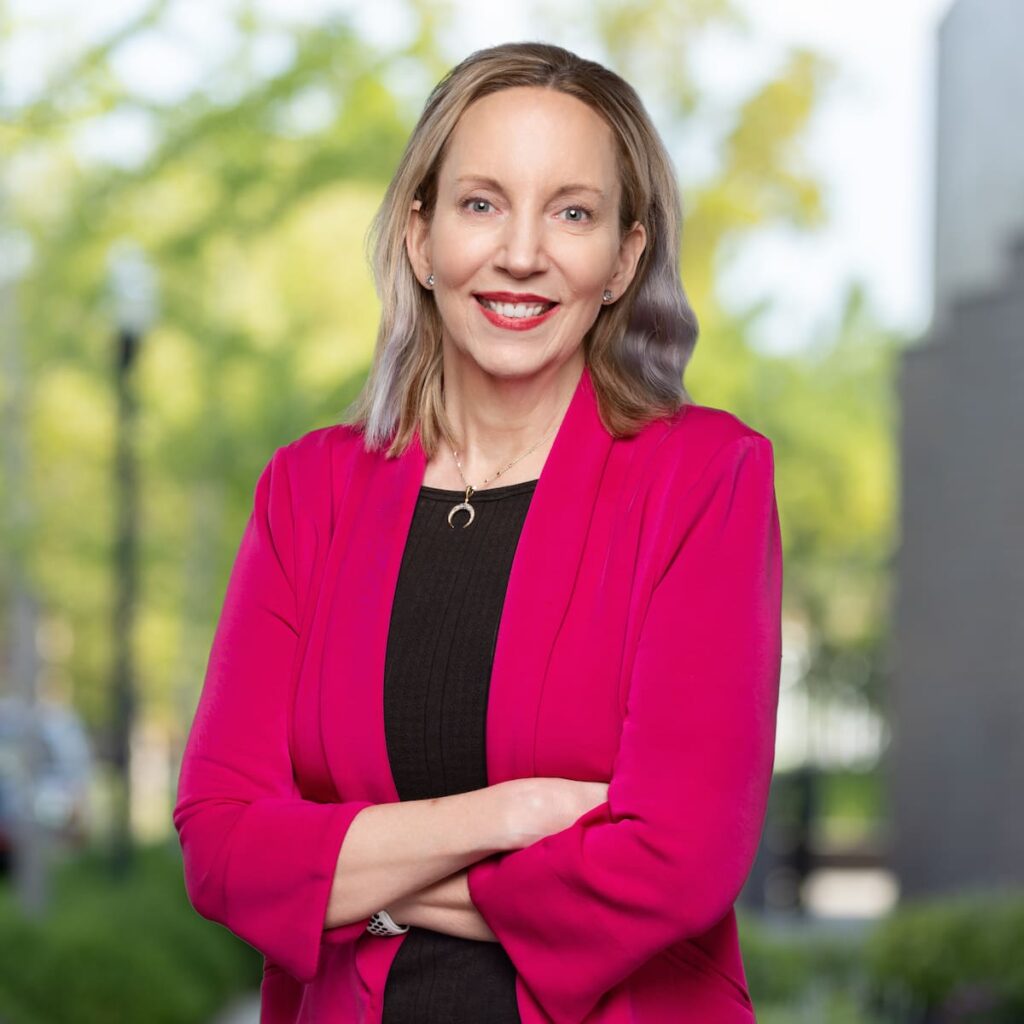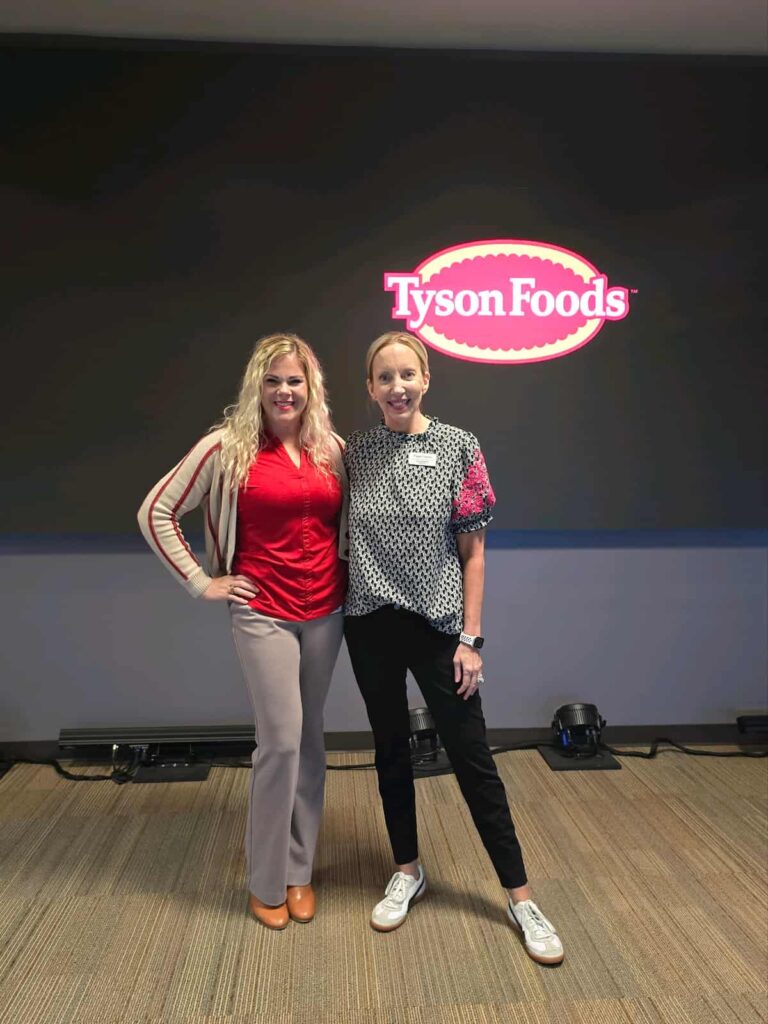
Paige Francis | Chief Information Officer | Art and Wellness Enterprises
Paige Francis has been a Chief Information Officer (CIO) for 15 years, primarily serving higher education institutions. Currently, she serves as CIO of Art and Wellness Enterprises, which supports operating non-profits founded by Alice Walton including the Alice L. Walton Foundation, Alice L. Walton School of Medicine, Art Bridges Foundation, Crystal Bridges Museum of American Art, the Momentary, and Heartland Whole Health Institute. Her work spans across diverse settings such as museums, foundations, performance spaces, schools, and institutes, where she creatively leverages technology to enhance all experiences, including educational. Paige was drawn to educational technology due to its challenging yet rewarding nature. As a technology leader, she finds great satisfaction in helping students, faculty, and staff improve their daily lives through technology. She recognizes the immense power of EdTech in delivering lectures, enabling remote teaching for parents, and simplifying financial aid processes. In modern higher education, technology underpins all operations, with education-specific solutions enhancing every aspect of teaching and learning. We at EliteX, are proud to introduce Paige Francis as one of the Transformational Leaders in EdTech, 2024.
To Paige, transformational leadership in EdTech means fostering an educational community that collaborates to achieve higher levels of success. This involves clear communication of purpose (‘the why’), consistent over-communication, perseverance, and maintaining consistency in efforts. Paige has observed significant changes in the EdTech landscape, particularly due to the pandemic. The crisis demonstrated that business continuity could be maintained through smart use of technology. Creativity and patience allowed classes to continue, whether on campus or remotely. Additionally, the pandemic highlighted the importance of strong partnerships, as providers and partners enhanced their services to ensure accessibility for all. Many of these advancements should remain post-pandemic to address access issues. Throughout her career, Paige has aimed to make technology less intimidating at the universities she has served. Her leadership has helped transform technology interaction from a dreaded task into an exciting challenge, thereby adding greater value to the tech experience.

“Transformational leadership in EdTech means fostering a community that collaborates to achieve higher levels of success, underpinned by clarity and consistency.”
Paige identifies the reluctance to abandon outdated systems as a major challenge in integrating technology in education. Without investment in modern, secure systems and a focus on big-picture thinking, the overall experience suffers, and risks increase. Recognizing the critical importance of up-to-date, secure technology is essential for improving the educational experience for all stakeholders. For Paige Francis, user experience and accessibility are paramount in the development of EdTech solutions. She acknowledges that decades ago, it was common to dictate how technology should be used without much consideration for user experience. Today, however, people understand the capabilities of technology. If an EdTech solution is not accessible and offers a poor user experience, it begs the question of its purpose and intended audience.Paige emphasizes the importance of inclusivity in her EdTech initiatives. She believes that involving everyone in the conversation and ensuring everyone understands ‘the why’ behind the technology is crucial. By embedding accessibility into every aspect of development, she ensures that diverse learning needs are met. Furthermore, she designs solutions to be agile, allowing for reconfiguration and adjustments if any needs are initially overlooked.
“The true power of educational technology lies in its ability to make learning accessible to everyone, regardless of their circumstances.”

Always the advocate for increasing the number of women in tech, Paige Francis with Tiffany Benitez, Founder and President of Women in Technology of Northwest Arkansas.
To stay current with the latest trends and innovations in EdTech, Paige adopts a continuous learning approach: she watches, listens, and learns. This proactive approach helps her remain informed about the evolving landscape of educational technology. Paige values finding the right people and staying current with them as a key strategy for successful collaborations. Whether through CIO Chat on X/Twitter, CIOArts via Teams, Educause lists, biweekly calls with another CIO, or discussions with Gartner representatives, she constantly recalibrates her ideas. This ensures that her thoughts and initiatives lead to genuine improvements rather than changes for the sake of change. When it comes to measuring the impact and effectiveness of her EdTech initiatives on student learning outcomes, Paige establishes a baseline using non-tech metrics. She then measures activity and improvements from that point, providing a clear picture of the technology’s effectiveness.
“User experience and accessibility aren’t just priorities; they are the foundation of effective EdTech solutions.”
Paige sees emerging technologies like AI, AR, and VR playing a significant role in the future of education. These technologies have the potential to eliminate geographical and physical barriers, allowing students from any location to participate and learn as if they were present in the classroom. Data privacy and security are critical concerns in the use of EdTech tools. Paige ensures that all tools are thoroughly vetted, and that responsibilities and accountabilities are clearly defined. This meticulous approach helps protect the privacy and security of students and educational institutions. For those aspiring to make a difference in the EdTech industry, Paige advises learning to respond to pushback with grace and clarity. She emphasizes the importance of continuously learning about the business and identifying ways that technology can enhance the educational experience.
Looking to the future, Paige envisions a world where all educational delivery methods—whether live online or traditional face-to-face—are equal and tailored to meet everyone’s needs. This future would cater to various technology preferences, accessibility requirements, and schedules, ensuring that education is accessible to all, regardless of their circumstances.
Twitter: https://x.com/CIOPaige
LinkedIn: https://www.linkedin.com/in/paigefrancis/
Forbes: https://www.forbes.com/sites/paigefrancis/
